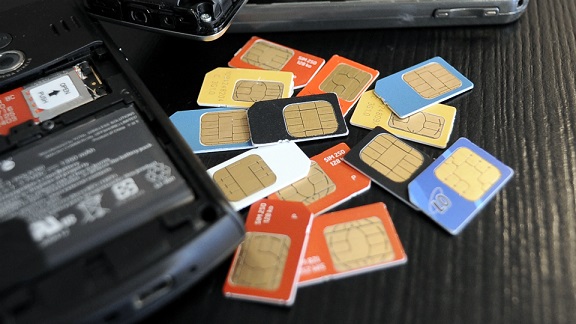According to reports from news sources, it is alleged that Etisalat Group has until Friday June 23 to give up its 45% stake in Etisalat Nigeria to different banks within and outside Nigeria. Two banks in the country have been linked to this transfer of ownership — Access Bank and Guaranty Trust Bank. This is because Etisalat Nigeria defaulted on a ₦541 billion ($1.2bn) loan it took from the banks over the years.
Rumours of this takeover began to surface in March, forcing the Nigerian Communication Commission (NCC) to put a foot out for the company. The premise was that Etisalat Nigeria had the ability to meet its loan obligations putting into consideration reports stating the company had allegedly paid 50% of the loan that was collected from the consortium of banks. However, this didn’t stop the decision of the consortium, which went ahead with the takeover proceedings.
This led the NCC to release a statement on the 20th of June 2017. The statement, which was by the NCC spokesperson Tony Ojobo stated that Etisalat’s operating license is personal to the company (per the requirements of the NCA) and as such is not transferable to a third-party (in this case the consortium of banks through their loan trustee) without NCC’s approval.
A statement signed by the vice president regulatory and corporate affairs Etisalat Nigeria, Ibrahim Dikko stated that
Etisalat Nigeria can confirm discussions are ongoing regarding other issues such as the trading name during this transition phase. Operations and services to our subscribers remain normal and will in no way be affected as we continue to deliver quality services to our subscribers
The change in stake hold ownership was confirmed in a letter to Abu Dhabi securities exchange in the United Arab Emirates. The news has kept Etisalat subscribers on the edge of their seats, many thinking of moving to other networks because of doubt over Etisalat’s future.
From June 23,
Etisalat Nigeria will stop SUCKING DATA, but, will start DRINKING DATA.
Be prepared!!!— Kemi (@d_problemsolver) June 21, 2017
Issa simpu question,
What would be the impact of this on customers and employees?
My subscription cannor just go laikdat 😭
😂— Benjamin Dada (@DadaBen_) June 21, 2017
Difficult times
Etisalat isn’t the only telco in the country that is going through a hard time. In 2013, NCC instructed telcos operating in Nigeria to register all their users on a general database. This was to have accurate numbers of individuals that were making use of the network connections in the country and also stop the individual use of more than three SIM cards. After the allotted period of time, NCC instructed a disconnection of subscribers with unregistered SIM cards. MTN, one of the telecoms, failed to do this and was fined $5.2 billion. Mismanagement and misplaced priorities by officials have been identified as one terrible issue amongst telecoms in Nigeria.
Lack of infrastructure to contain a lot of people on the network is another major issue. In 2016, telcos slashed prices on internet data leading to a price war and an obvious increase in a number of users on networks. Globacom, in a bid to win more customers over went as low as 1000 for 2GB, many customers chose the Glo option.
Subsequently, the number of subscribers on the Glo network was too much for the available infrastructure for internet usage in the country, causing subscribers to complain about slow internet on the network. Till date, Glo has been tagged the slowest internet provider amongst all telecoms in Nigeria. In 2017, the company had to enforce a data volume slash to stabilise the internet services from them but this didn’t change the state of their internet service.
Telecoms can be made to partner with efficient ISPs to manage the network in a particular area. This doesn’t mean they will be absent in other parts, but it will be their significant duty to ensure network services in these areas are satiable to the demands of the customer. Telecommunication companies should ensure that no matter the number, their subscribers must get the best services.
In 2006, the Central Bank of Nigeria (CBN) made a decision to set a benchmark for the required amount of cash reserves a bank should have to be licensed for operation in the Nigeria, this led to the liquidation of some banks and also the merger of others to form stronger consolidated units. This move by the CBN has since then assured members of the society the safety of their monies.
With all the issues going on in the telecommunications sector, maybe it’s time for the governing arm to take the same step of consolidation. Instead of having many telecoms providers and problems surrounding service provision, they could form one or two major telecommunications companies. This will remove self-serving practices targeted at making serious profit. A decision of this nature will ensure efficiency and stronger infrastructure.
Techpoint is conducting a survey of tech worker salary satisfaction in Nigeria. Please take just three minutes to fill this anonymous form. Thank you.






